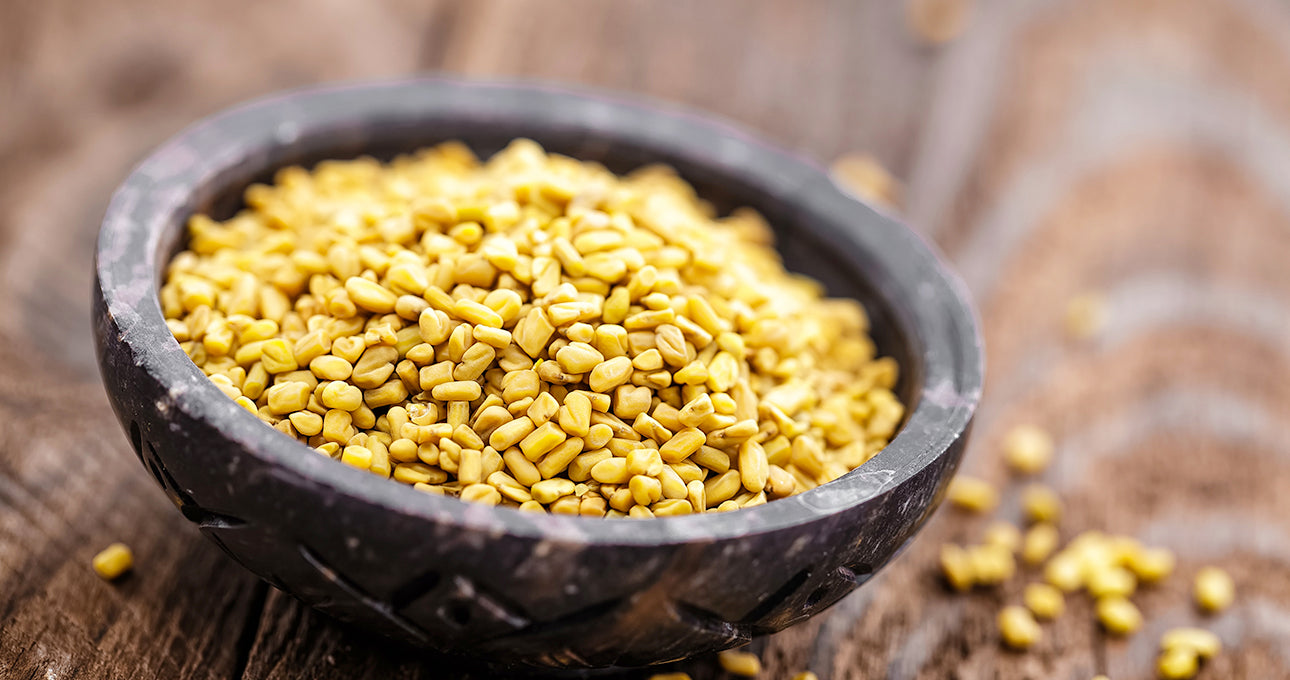No Products in the Cart



What is it?
Fenugreek is a plant native to the Mediterranean region, southern Europe, and western Asia. The cuboid-shaped seeds are prized for their maple-like flavor in Eastern cuisines (especially Indian) and their medicinal properties. The seeds can be eaten straight or in a curry, ground up into a flour and baked into breads, as a tea, and pressed into oil. The leaves are eaten as a vegetable in some regions.
What’s it used for?
Fenugreek has a long history of medical uses in Ayurvedic and Chinese medicine. It’s commonly used to treat digestive problems, diabetes, and cardiovascular disease. Nursing moms use it to enhance milk production. Men use it to increase testosterone and libido, and athletes use it to boost exercise performance.
Diabetes
The most compelling therapeutic use of fenugreek is for regulating blood sugar. The seeds and flour are best for this purpose. The herb slows down carbohydrate absorption after meals and impacts insulin sensitivity. Fenugreek is taken for decreasing blood glucose, for general glycemic control, and to enhance insulin sensitivity.
High levels of triglycerides in the blood is related to risk of diabetes and pre-diabetes, and may signal compromised carbohydrate metabolism. Some evidence suggests that fenugreek may help reduce triglyceride levels.
Testosterone and libido boost in men
Research is mixed on this; one study did show increases in testosterone level with fenugreek use, while another did not. Studies are also mixed about libido.
Milk production in women
Some research suggests that drinking fenugreek tea helps nursing mothers boost milk production.
Dosing and Warnings
Fenugreek appears safe for use by healthy adults. The effective dose range is around 500 to 5000 mg per day, depending on intended use. 2000 to 5000mg of seeds daily is a common dose for blood sugar regulation, while nursing moms take around 500 to 1000mg per day. For boosting testosterone and libido, men should take 300 to 600mg per day.
Side effects (especially from doses over 5000mg) may include gas, bloating, and diarrhea.
Do not use if you have hypoglycemia. Do not use extracts or teas or supplements (seeds in food ok) if you are pregnant or planning to become pregnant. Do not take if you are taking blood-thinning drugs. If you have diabetes, make sure to check your blood sugar regularly while using fenugreek.
The scientific evidence supporting fenugreek as a safe and effective ingredient for mens overall health is what led the research and development pros at SHREDZ to create Testosterone, an innovative mens supplement with multiple ingredients, including purified fenugree extract. The supplement has been carefully designed to enhance libido and fitness.
References
https://examine.com/supplements/fenugreek/#hem-testosterone
http://inconnate.com/Download/Fenugreek/document3.pdf
http://examine.com/supplements/Fenugreek
Someone purchsed a